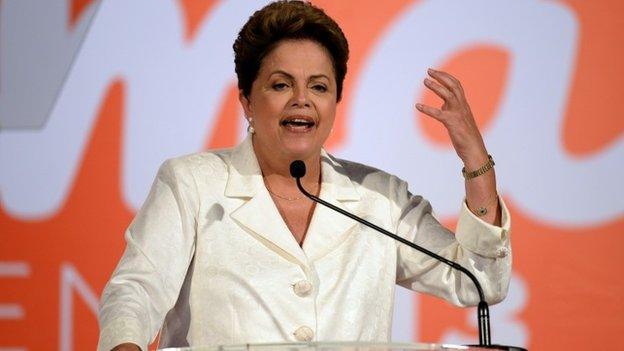Damage control: Brazil's government reacts to protests
- Published
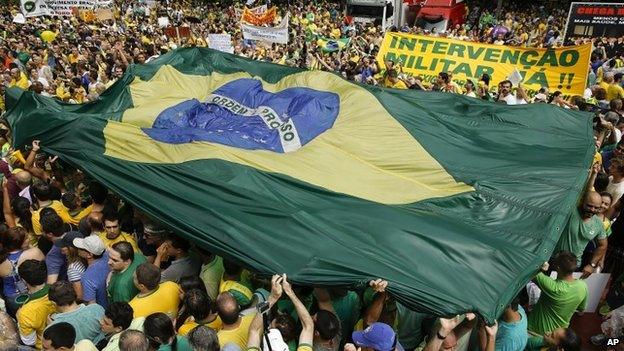
Protests took place across 22 Brazilian states and the federal capital, Brasilia
The Brazilian government wanted to react quickly in the wake of Sunday's protests, external involving a hotly disputed, but undeniably large number of demonstrators.
Noting that it was exactly 30 years since the end of Brazil's military dictatorship, the soothing official response was that the diversity of views was proof of the strength of the country's young democracy.
A tiny flaw in that argument was the presence of some demonstrators who were calling for the military to intervene again, but they were, in fact, a minority.
Nonetheless, faced with a poorly performing economy and tainted by a corruption crisis at the state-run oil company Petrobras, the government was harshly criticised at multiple protests across Brazil.
Damage control
President Dilma Rousseff won a tight second-term election victory only last October, and among the protesters were undoubtedly political opponents for whom a Workers' Party government will always be unacceptable.
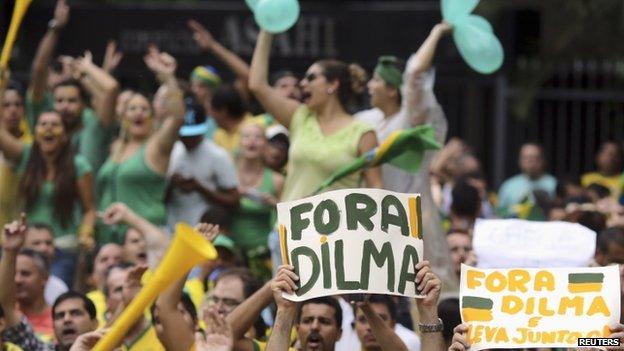
Many protesters called for the impeachment of President Dilma Rousseff
But such a large scale protest could not be left to hang in the air and two ministers were despatched to appear before the TV cameras.
The job of Justice Minister Eduardo Cardozo was to deflect the anti-government critics, promising a "package of measures" to address corruption and impunity - key concerns among the protestors.
His ministerial colleague Miguel Rossetto was watching the government's flank, promising to listen to more traditional government supporters who oppose plans for austerity measures.
Brazilians of all political views have heard talk of a "package of measures" before, most notably following widespread street protests in 2013, only to see little actually change on the ground.
Shifting ground
And the problem for the government in the months ahead is that it is not in complete control of events that may shift public opinion.
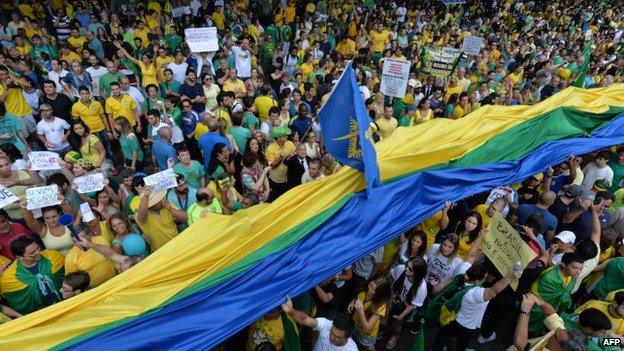
The government said the protests were a healthy sign of democracy
In Congress, President Rousseff, lacking the political skills of her predecessor, has struggled to control her governing base, with defiance from the speakers of both the lower and upper houses.
She has promised change and a more inclusive approach to governing.
The new Finance Minister, Joaquim Levy, is forging ahead with an austerity plan which traditional government supporters fear could jeopardise recent social advances.
The 2014 GDP figure is due to come out on 27 March and may at best suggest a year of stagnation in a country which had been growing at 7% in 2010.
Corrosive effect
The continuing scandal at Petrobras is having a corrosive effect on the whole economy, and has drawn in some of the biggest construction firms in the country.
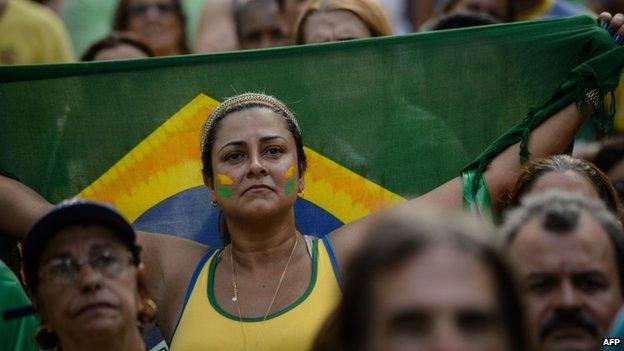
Even if protests quieten, the government has a number of challenges looming
The investigation itself is providing a daily litany of negative headlines of arrests and plea bargain statements, and many politicians from the governing coalition are facing investigation.
The government says a relentless and independent investigation is proof of their commitment to root out corruption, but the crisis has been damaging.
A water shortage in southern Brazilian states, while easing a little due to summer rains, still threatens rationing and even energy shortages.
Brazil's democracy is undoubtedly strong, and talk of military coups these days is seen as far-fetched, but the tone of political debate is acrimonious, not least on social media.
The combination of a weakened government, a struggling economy and a divided society is not the easiest backdrop for a president whose second term has got off to a shaky start.
- Published16 March 2015
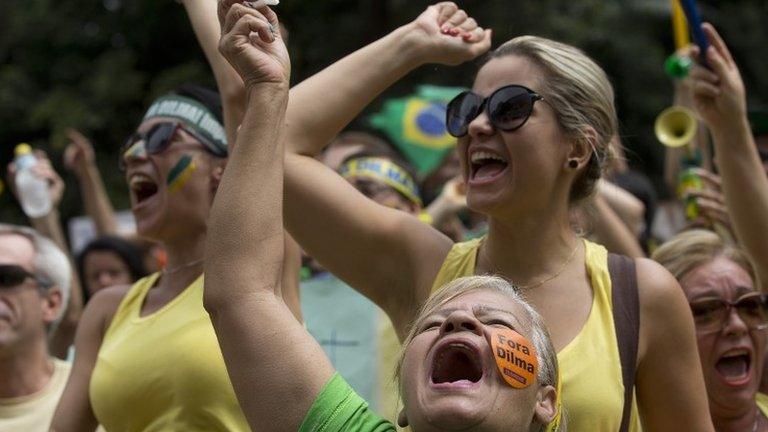
- Published7 March 2015
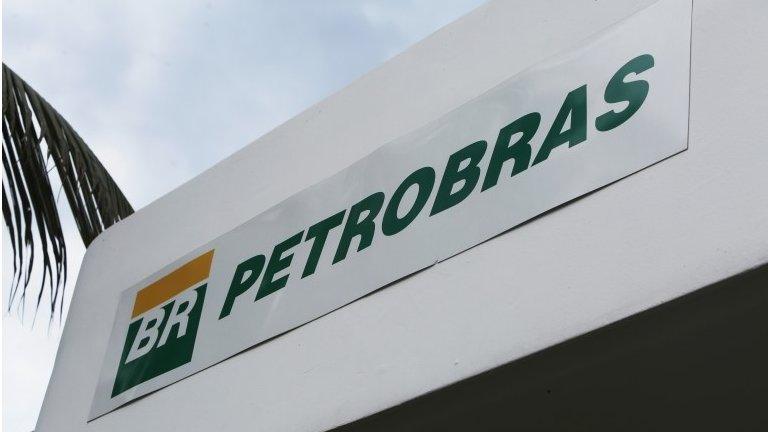
- Published27 February 2015

- Published13 April 2016
